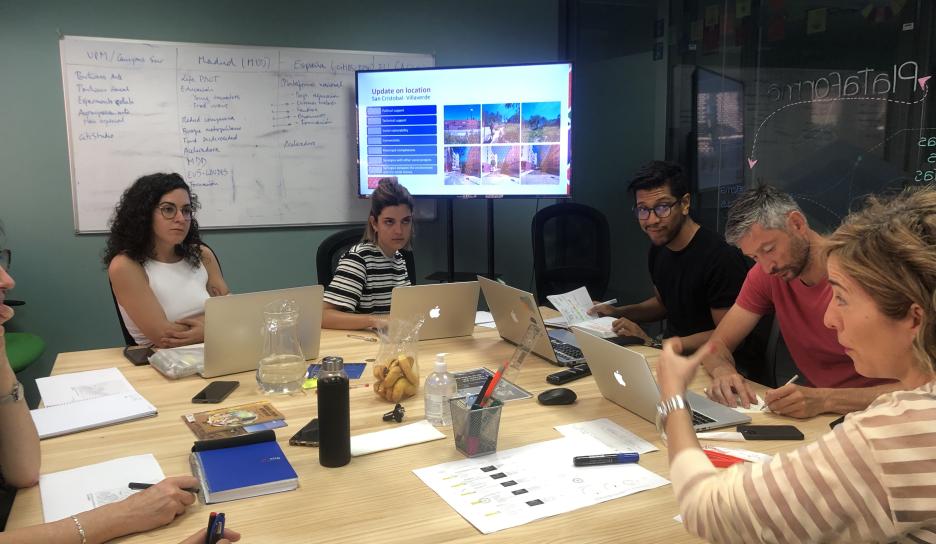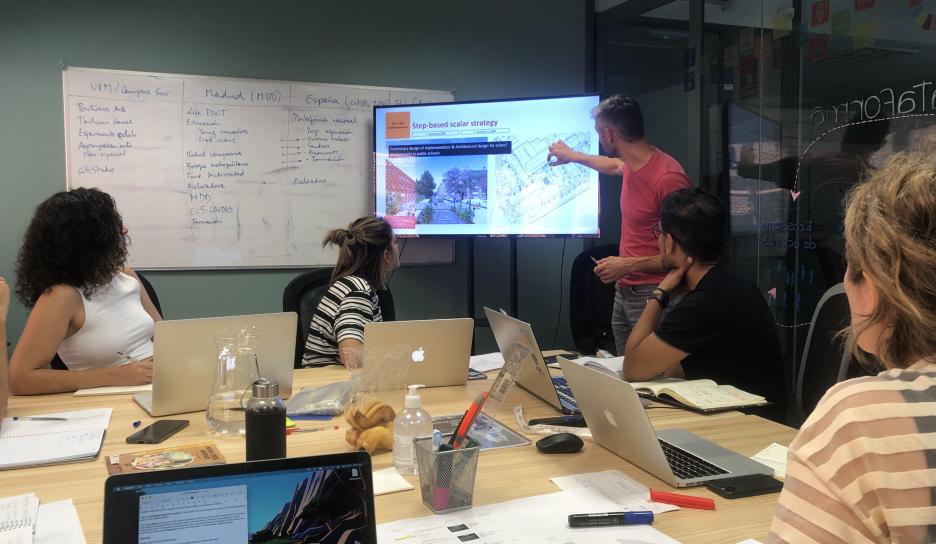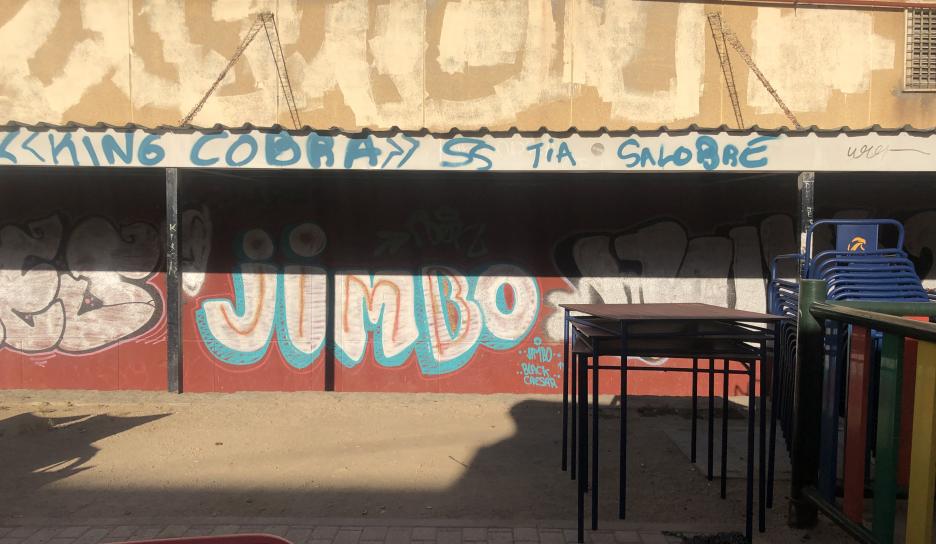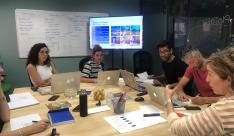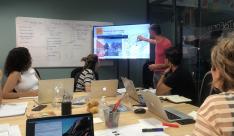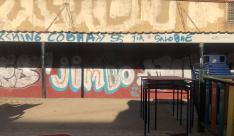Hub on the Road Madrid
The Hub went ‘on the road’ to Madrid from 4-5 July 2022.
Interviews
Twelve interviews were conducted with project partners and associates from the City of Madrid, Universidad Politécnica de Madrid, Basurama, Plataforma Nave Boetticher, and Programa de Intervención Comunitaria Villaverde. All of these partners are connected to the San Cristóbal neighbourhood of Madrid, working with schools and the local community to deploy nature-based solutions.
Discussion points
- Challenges of crossing the mental and physical ‘divide’ between public & private infrastructure as sites of NBS implementation.
- Importance of working in multidisciplinary ways and breaking out of siloes e.g. how might we involve artists?
- Spatiality and boundaries or ‘territories’ where the work happens; place-based action.
- Learning by doing and involvement in the process as the main way to build capability in NBS; do this early and often.
- Critical role of 'social connectors' in local neighbourhoods where interventions are happening, who know the territory and the people, and know how to navigate diverse local groups and coordinate their engagement in activities connected to NBS implementation.
- Communities approaching trusted ‘street-level’ organisations with climate-related experience first for assistance, by-passing government. For example schools asking Basurama (trash art collective) for help with cooling/shading.
- Involving migrant communities in the process and elevating them to Community Managers; growth in esteem and greater change of work continuity.
- Communicating back field learnings in practical, accessible ways that others can use.
- The importance of optimal job conditions for team stability to ensure consistency, quality and integrity of the work over many years.
- Critical need for parent and teacher 'buy in' when applying NBS in an educational context, for greatest chances of successful implementation.
- Conflict as a constructive mechanism for change. 'We believe that conflict is not something negative, it is a way to build the construction of our community and the construction of value of an entity … we can extract from the complexity we produced. We get the juicy information.'.
- Better if the site is selected ‘ground up’, rather than the city ‘top down’ selecting the site, continued engagement in process. 'In this project the school was pre-selected. That means a change in our methodology and we are noticing this because they did not reach out to us in the first place.'.
- The need for greater interconnection, respect and coherence between humans and nature.
- Practical questions about Leuven activities, including monitoring approaches and how citizen and stakeholder engagement has been done and involved diverse groups.


